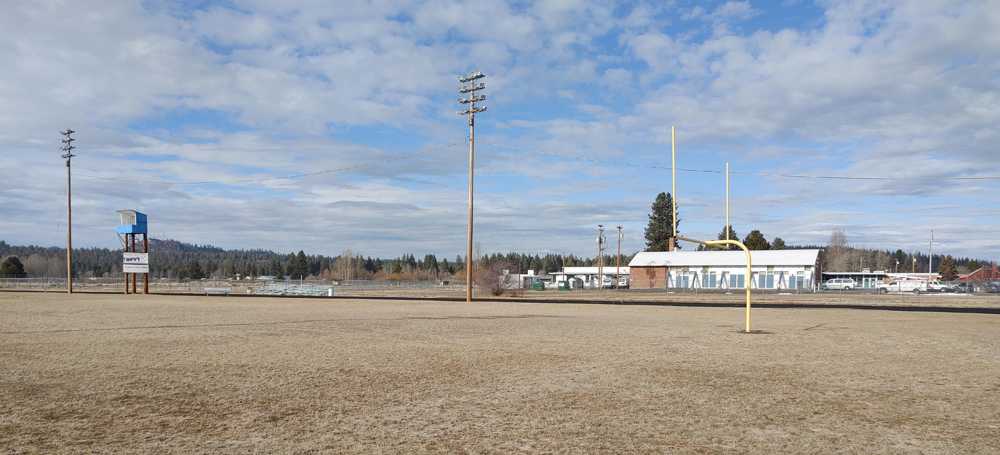
[Editor’s note: The idea behind “Alphabet Stories” is to write one noteworthy athletics-related story about each OSAA-member school. We started with Adrian HS on Sept.18. Today’s story, more than four months later, is about Chiloquin High School. The goal will be to write two per week. While we will be relying upon athletic directors to furnish story ideas, anyone may offer suggestions by emailing johnt@osaa.org]
Friday nights at Chiloquin HS used to be special. The entire town of Chiloquin, settled at an elevation of 4,180 feet approximately 30 miles north of Klamath Falls, came out enthusiastically to support the Panthers’ 8-man football team.
Fans would park at the east end of the field and honk their horns and flash their lights every time the home team scored. The fire department’s engine and ambulance, stationed on the south side, would do the same thing. It was quite the spectacle.
Since 2018, however, “Friday night lights” at home have been few and far between for the boys from Chiloquin. The problem is water. Not having enough of it has left the Panthers high and dry.
Water in the region is scarce, with many different groups competing for it. Chiloquin relies heavily on melting snowpack from the mountains for its water supply, but less snow and arid conditions have required that water be rationed. With the Klamath Tribes having seniority on water rights and the town of about 750 also needing water to drink, cook and bathe with, there hasn’t been water left for watering lawns or anything else for that matter.
Chiloquin, a 1A school in the Mountain Valley League, uses its field only for football in the fall. The Panthers have had mixed results on the gridiron over the years. They have struggled with turnout and finding and keeping a coach. But the town’s residents and student body really want a football team. They want something to cheer for collectively, something to support vociferously. That’s what small-town communities do.
The water problem is having an impact. Not being able to irrigate means Friday night home games being played at Mazama HS 30 minutes away unless there’s a fortuitous stretch of rain to turn the field green (and maybe soften it up). It means fewer fans being able to show up for the Panthers, especially students.
Not being able to irrigate means trying to find a safe place for the team to practice. Head coach Ron Schroeder, who took the job in 2019 when Chiloquin was at risk of canceling its season, said the team has utilized a field in front of the school, but it’s not optimal.
“It’s not very big; about half the size of a regulation field,” he explained. “It’s works but it would nice to be on our own field and be able to utilize the sleds and other machinery. Being on our field also would help in assessing the kids.”
Rather than play the blame game over why keeping a high school football field green and safe for Panther players isn’t a priority, the community has been working to find a solution. Last fall, the school’s principal, Scott Preston, reach out to Fire Chief Mike Cook for help. Chief Cook said the Klamath Tribes allowed the fire department to use their well.
“We filled up our tenders and brought them back and used sprinklers in an attempt to keep the grass green,” Chief Cook said. “We attempted to do it every other day for about a month.”
Using 2-3 truckloads each time, the effort produced a green space on about one-third of the field, enough to practice on but not to play.
“The Chiloquin Fire Department was honored they asked so the kids could have a safe field to practice on,” Chief Cook said.
Schroeder, who himself has experience as a firefighter, fears that the water issue will only get worse.
“As someone who has been around and knows the terrain, I don’t think we’re going to have the water that we need,” he said. “I have seen it happening. We don’t have enough snow to support everything that’s going on here. It’s going to be hard for a lot of people this year, farmers, ranchers, the Tribe…”
And the football team, which could use a downpour to stave off its possible downfall.












